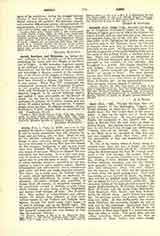

Aseity (Lat. a, from, se, itself: ens a se) is the property by which a being exists of and from itself. It will be easily understood that this property belongs, and can belong only, to God. When we look for the efficient, exemplary, and final cause of all things, of their existence, nature, and organization, we come ultimately to a Being Who does not depend for His existence, realization, or end on any cause other than Himself; Who has within Himself His own reason of existence, Who is for Himself His own exemplary and final cause. It is to this very property of absolute independence, or self-existence by nature that we give the name of aseity. This notion of aseity includes, therefore, according to our conception, a negative and a positive aspect; absolute independence and self-existence, which complement each other and form one single objective property. (See Gem.) As is easily seen, the Catholic concept of aseity which represents God as absolutely independent and self-existent by nature, and, consequently, all-perfect without any possibility of change from all eternity, is altogether opposed to the pantheistic concept of absolute or pure being, which absolute or pure being evolves, determines, and realizes itself through all time. (See Pantheism.) This quality of independence and self-existence has always been affirmed of God under various names by the Fathers and Catholic theologians, though the word aseity itself began to be used in theology only in the Middle Ages. The only point disputed among the theologians is, whether this property constitutes the very essence of God. (See Divine Attributes.)
GEORGE M. SAUVAGE

